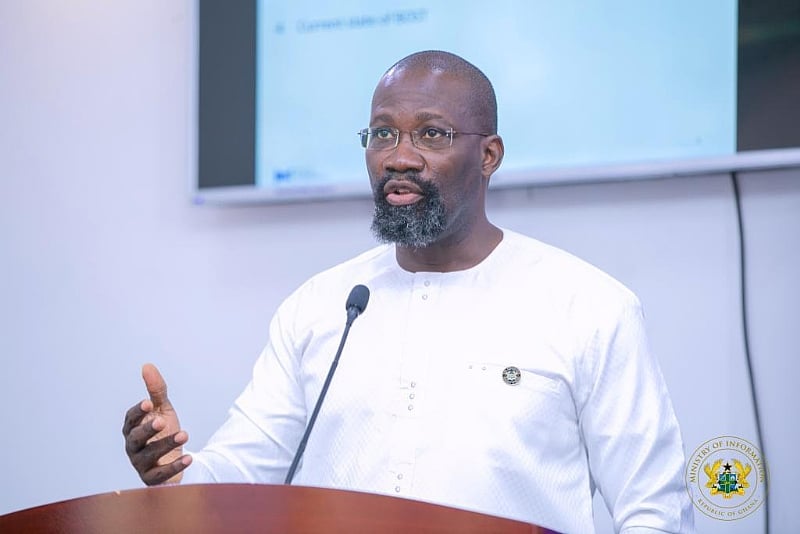Dr. Edwin Alfred Provencal, Managing Director of Bulk Energy Storage and Transportation Company Limited (formerly known as Bulk Oil Storage and Transportation Company Limited or BOST), recently disclosed that the company’s trade liability in 2017 stood at a staggering $624 million. This debt raised significant concerns, as Provencal highlighted that it could have been utilized to construct 624 new educational blocks (e-blocks) across Ghana, each estimated to cost around $1 million. This staggering figure underscores the pressing infrastructure deficit in Ghana’s educational sector. During a press briefing on November 6 at the Ministry of Information in Accra, Provencal urged stakeholders to recognize the potential benefits of redirecting such large sums of money towards educational initiatives, which could substantially improve the learning environment for students.
The massive $624 million liability reported in 2017 was primarily attributed to fuel purchases and outstanding obligations to various Bulk Distribution Companies (BDCs). Provencal revealed that BOST had faced challenges with unaccounted products stored in its facilities, leading to significant claims against the company. Specifically, he mentioned that $37 million in claims from BDCs could have funded the establishment of 37 additional e-blocks. This situation, characterized by unclear accounting and financial mismanagement, raised alarms regarding the operational efficiency of BOST during that period. Despite these troubling figures, Dr. Provencal expressed optimism about the future of BOST and the steps taken towards financial stability.
With a commitment to accountability and transparency, Provencal assured the public that the current leadership has made substantial progress in addressing the company’s debts. He announced that, to date, BOST had successfully cleared 100% of its trade liabilities. This achievement reflects the dedication and hard work of his team in navigating the company’s financial challenges and restoring its credibility. Provencal’s assertion that BOST is now on solid financial footing is an encouraging message for stakeholders and the Ghanaian public, indicating a commitment to sustainable operational practices moving forward.
In addition to the $624 million trade debt, BOST’s financial obligations in 2017 included GHS416 million owed to local banks and $109 million in capital expenditure liabilities from prior projects. These figures paint a vivid picture of the financial challenges faced by the company at the time. Provencal characterized the financial landscape of BOST as “gloomy,” highlighting the dire need for reform and turnaround strategies that would benefit all Ghanaians. His reflections emphasize the importance of effective management and strategic planning in overcoming past missteps and ensuring the company’s future viability.
The transformation of BOST under the current leadership has not only focused on debt repayment but also on improving the overall financial and operational performance of the company. Provencal’s administration seems committed to adopting sound business practices that promote long-term growth and sustainability. This approach is expected to enhance BOST’s ability to support national development goals, particularly in sectors requiring significant investment such as education and energy. Stakeholders are keenly watching these developments, looking for continued improvements that align with the overall vision for Ghana’s progress.
In conclusion, Dr. Provencal’s announcement regarding BOST’s substantial debts from 2017 serves as a critical reminder of the potential implications for social infrastructure in Ghana, particularly in education. By emphasizing the lost opportunities from the trade liabilities and the commitment to financial rectitude, he sets a hopeful tone for the future. BOST’s current focus on clearing debts and boosting operational efficacy positions the company not just as a vital player in Ghana’s energy landscape, but also as a potential contributor to the larger national goal of educational and infrastructural improvement. The leadership’s efforts to turn BOST around could yield significant dividends for the nation’s development trajectory if sustained over time.














